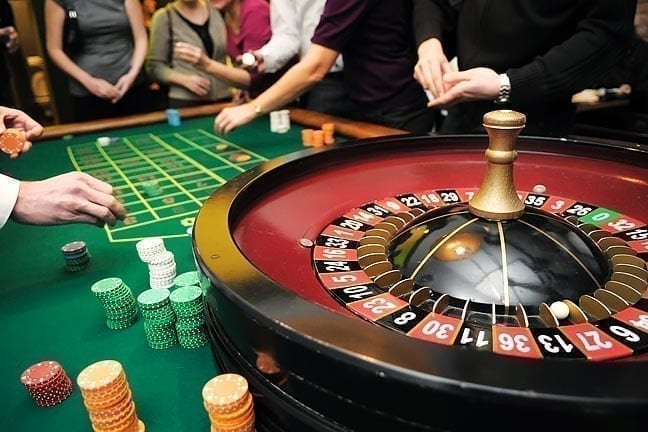Picture yourself at a casino. You play one round, then two, then twelve, and suddenly you’ve lost much more money than you meant to.Why? The casinos are masterful at taking advantage of weaknesses in our ability to make choices—including our belief in luck.QUIZ: Think You Have Good Luck?Casinos always set the odds so that they are slightly in favor of the house. For example, the payoffs for roulette are set up as if there were 36 spaces on the wheel, but there are actually 38 spaces, and so in the long-run the house always wins. The longer the casino can get you to play, the more money they are going to make from you.The best way for the casino to get you to play for a long time is to make the games completely random. And that is because your mind is exquisitely designed to find patterns, even when the world is actually random. In the casino, that means that you start looking at when certain numbers come up on the roulette wheel, or whether there is a sequence of red and black numbers. That search for patterns keeps you interested in the game, and so you keep playing.That search for patterns also leads you to start looking for relationships between events, which we often think of as luck. If you do something nice for someone and then later in the day find a dollar on the ground, you may feel like the universe gave you a reward for your kindness.MORE: Kind Acts Make Things SweeterIn fact, once you are in a good mood, you start to notice more of the good things that are happening to you. So, a couple of positive events to start the day can make you feel like you are on a lucky streak. It may not be that more good things have happened than usual, but just that you are noticing more of the good things than you normally do.Of course, the opposite can happen as well. If you break a heel on the way to work, and then a car splashes you with water as it goes by, you will probably notice every bad thing that happens for the rest of the day. At that point, you may feel like the unluckiest person on the planet.The problem with the search for patterns in randomness is that it can affect the way you see the world and make decisions. As one example, we often notice repetitions. If you flip a coin five times, and it comes up heads all five times, you might expect that it ought to come out tails the next time, because that would make it even out. The belief that as a streak gets longer it becomes more probable that it will end on the next flip is called the gambler’s fallacy. Of course, the coin doesn’t really remember how it landed in the past, so the actual chance the coin will come up heads on a flip is 50 percent, regardless of how many heads you have already flipped in a row.It is easy to see that with a coin, but the same thing often holds true in relationships. I have often heard people in a new relationship say that it is going so well, they are just waiting for something bad to happen. They start looking for signs of imperfection, because a streak of good days just shouldn’t go on that long.While relationships are not exactly like coin flips, it is true that the good and bad times in any aspect of life don’t need to even out in the short-term. If you are having a great month with your partner, just enjoy the ride. Don’t start looking for the cloud lurking behind the silver lining. When you start looking for trouble, your own actions may actually create a problem.Ultimately, the belief in luck is just a reflection of your mind’s profound ability to find patterns. A pattern learned over months of experience is probably worth paying attention to. On a day-to-day basis, though, try not to get too caught up in waiting for the next good or bad thing to happen.MORE: Four Ways to Improve Your Luck
© YouBeauty 2024




































